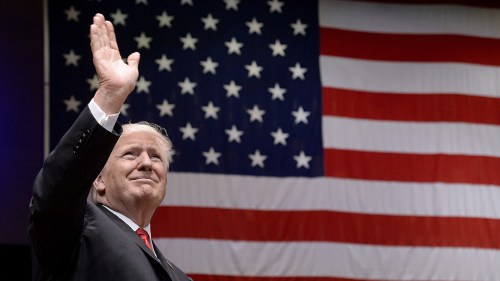Naturalized citizens fired up to vote this year: Poll
Naturalized citizens are likely to vote at much higher rates than U.S.-born voters, potentially playing a decisive role in an election with razor-thin margins.
According to a new poll by the National Partnership for New Americans (NPNA), 97.3 percent of naturalized citizens in swing states plus California say they are likely to vote in November, and 75.5 percent said they definitely will.
The potential for high participation tracks with past performance for naturalized voters.
About 66 percent of the general voting age population turned out in 2020, the highest participation rate since 1900, according to the Pew Research Center.
The NPNA poll found that 86.8 percent of its respondents said they voted in 2020.
And there are nearly 25 million naturalized citizens across the United States, according to the Migration Policy Institute (MPI).
“Those polled are among the over 3.5 million new Americans that have naturalized since the last presidential election, and with naturalized voters now accounting for over 10 percent of the U.S. electorate nationwide, they have the potential to play an outsized role in key states this November. What is clear from the polling is that new Americans are paying close attention to this election and are highly committed to vote,” said Nicole Melaku, executive director of NPNA.
The poll found a diversity of political leanings in the naturalized population, but overall, new citizens skew toward Democrats.
Nationally, 29.6 percent of respondents said they consider themselves strong Democrats, 13.7 percent identify as Democrats but not strongly, 17.9 percent said they are strong Republicans, and 12.5 percent identify as Republicans but not strongly.
Among independents, 7.3 percent lean Democratic, 5.9 percent lean Republican and 13.1 say they don’t connect with either party.
Those numbers are reflected in respondents’ presidential vote intent: 53.6 percent said they’d vote for Vice President Harris, 38.3 percent said they’d vote for former President Trump, 6.4 percent said they’d vote for another candidate and 1.7 percent said they would not vote at the time of the poll.
In 2020, 58.8 percent of respondents voted for President Biden and 37.9 percent voted for Trump, according to the poll.
At the state level, naturalized citizens are less likely to follow national trends.
For instance, Trump has a national net favorability of minus 13 among respondents, but a minus 26.3 rating in California and a minus 2.6 rating in Michigan.
Harris enjoys a positive 21.9 national net favorability, a net positive of 31.3 rating in California, and only a plus 4 rating in Michigan.
Trump generally has better numbers than his national average in Arizona, Florida, Michigan, Pennsylvania and Texas.
Harris underperforms compared to her national average in Arizona, Florida, Michigan, Nevada, Pennsylvania and Texas.
Though views on the candidates differ from state to state, the NPNA poll found consistent policy positions among new citizens in different states, with smaller deviations.
Asked whether immigration reform with a path to citizenship was important for their vote, a broad majority of respondents in all states said it was either very important, or somewhat important.
The number of voters saying the issue was not at all important for their vote ranged from a low of 7.5 percent in Michigan to a high of 10.6 percent in Arizona.
And majorities in all states said the fate of immigrants will affect them directly. At the national level, 21.3 percent agreed with that statement “a lot,” 40.3 percent said it would affect them somewhat, 26.5 percent said it wouldn’t affect them very much, and 11.8 percent said it would not at all.
Yet, the top issues for respondents were related to the economy and inflation.
“Like the rest of the nation, they are concerned about inflation, cost of living, and the economy. They also support affirmative immigration solutions that make our immigration system more efficient, timely, and respectful of people’s rights,” said Melaku.
Though there are nearly 25 million naturalized citizens across the United States, states including California, Texas, Florida and New York host the lion’s share of yearly naturalizations.
Of the 878,500 people who naturalized in 2023, 154,900 were in California, 99,900 were in Texas, 94,100 were in Florida, and 92,800 were in New York.
And about 9 million people remain eligible to naturalize but have not done so, according to MPI.
“With just 56 days remaining before the election, we encourage all who are eligible for citizenship to naturalize, and all who are newly-naturalized to register to vote — not only to strengthen our democracy, but to ensure our communities’ voices and priorities are heard at the polls,” said Melaku.
The survey was conducted and analyzed by the U.S. Immigration Policy Center at University of California San Diego.
It was conducted Aug. 16-28 among 2,678 naturalized citizens who are registered to vote, with oversamples for Arizona, California, Florida, Georgia, Michigan, Nevada and Texas. The margin of error for the national sample was reported as 1.89 percentage points and at the state level ranging from plus or minus 4.6 to plus or minus 6.7 points.
—Updated at 2:33 p.m.
Copyright 2024 Nexstar Media Inc. All rights reserved. This material may not be published, broadcast, rewritten, or redistributed..















